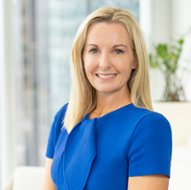Australian women are, on average, more confident than their Asia Pacific counterparts in their ability to manage their own money, at 60 per cent versus 49 per cent, according to research by Fidelity International.
You can see the key findings below
The Fidelity Global Thought Leadership Asia Sustainability Study surveyed 2086 males and females in Australia and looked at their attitudes towards their finances and retirement. It also surveyed people in Hong Kong, Singapore, Taiwan, China and Japan.
Lauren Jackson, Business Manager at Fidelity International, says the findings contain some areas of concern about how financially independent Australian women feel.
“There was some good news, with Australian women more likely to feel they are actively managing their finances, and that they have the ability to make the right decisions about where their money is invested or saved, compared to their APAC peers.
“However Australian women are more concerned about the effect of the cost of living on their financial situation (74 per cent compared to the APAC average of 52 per cent) and are more likely to have debts they are worried about (45 per cent compared to the APAC average of 33 per cent).
“Australian women are also less likely to agree that they have a personal income which covers everyday expenses and bills than their APAC counterparts.”
Where are the gaps?
Ms Jackson says there are also significant gaps between how Australian men and Australian women feel about their financial situation.
“Some of the biggest differences in attitudes towards money were in response to queries where respondents were asked to agree or disagree with statements like ‘investing is for people like me’,”1 Ms Jackson said.
“While more than half of the Australian men surveyed, at 57 per cent, agreed with that statement, just 34 per cent of Australian women did.
“Gender stereotypes around investor confidence may be a factor in these responses, but women are also less likely to say they feel very or fairly financially independent, which impacts their ability to see themselves as investors.
“Interestingly, Australian women are more likely to say there should be more help for those with children (e.g. childcare) than women from any other region, and also ranked highly in wanting more commitment from the government to close the gender pay gap,” she said.
Only half of Australian women said they felt very or fairly financially independent, with 54 per cent of them defining financial independence as having a personal income which covers everyday expenses and bills. This compared to 65 per cent of men who said they felt very or fairly financially independent.
The statistics also do not paint a positive picture for women reaching retirement. Just 35 per cent of women said they probably or definitely had enough for retirement, compared to 65 per cent of men.
“This comes as no surprise really, with the Association of Superannuation Funds of Australia (ASFA) finding the average superannuation balance for women aged between 60 to 64 was just $289,180 in June 2019, compared to $359,870 for men,”1 Ms Jackson said.
“That is well short of the $540,000 balance that ASFA says is needed for a single person to achieve a comfortable retirement based on retiring at age 67.”
The research found women are also much more conservative when it comes to their expected personal income in retirement and are anticipating an average income of $66,874 compared to $82,456 for men.
Looking ahead
“Much needs to be done to improve the superannuation gender gap. Many women’s retirement savings suffer from taking time out of the workforce to raise children and they also often work in lower paying industries,” Ms Jackson said.
“But financial advice can also help women on all income levels build their financial confidence. A previous study by Fidelity, The Pathway to Financial Independence, found that one in five advised women say they rarely or never worry about money, compared to one in seven unadvised women.”
The Pathway to Financial Independence study was conducted online in January 2022 and involved 2,017 adult Australians. It also found that advised pre-retiree women are about five times more likely than unadvised women to rate their knowledge of financial matters as very good.
“Financial advisers can help women build their confidence but can also educate them around how best to utilise many of the strategies available to assist in boosting their superannuation balances,” Ms Jackson said.
“For example, many may not know the downsizer contribution – which enables people to place up to $300,000 into their super from the proceeds of the sale of their home if they meet eligibility requirements – is now accessible to people over 55 years old,” Ms Jackson said.
Source: 1 Compulsory superannuation is delivering, but more needs to be done for women and the low paid - ASFA
